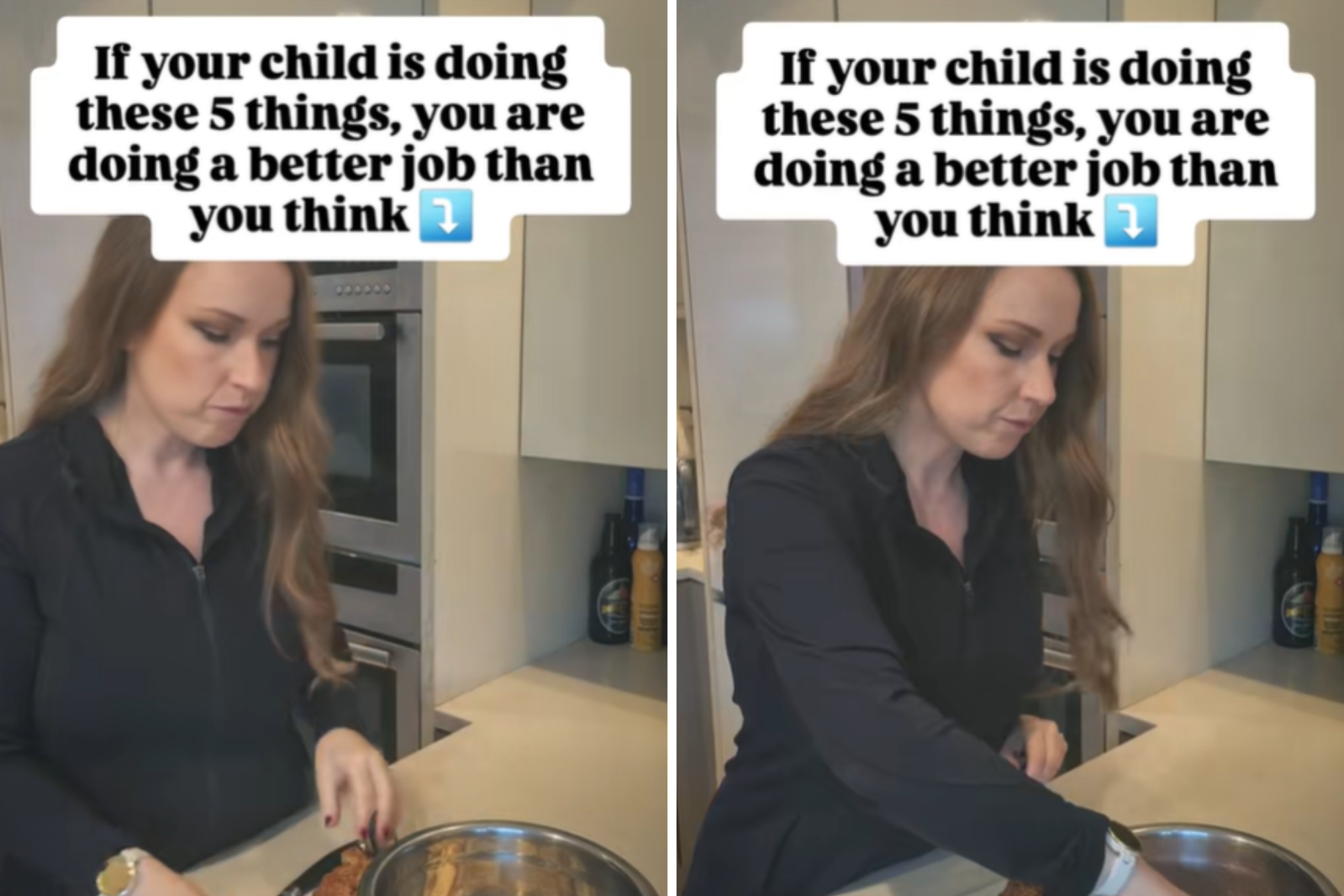By Daniella Gray
Copyright newsweek

A clinical and health psychologist is reassuring parents that they may be doing better than they think.
Dr. Bronagh Fitzpatrick (@theparentalpsychologist), based in Galway, Ireland, shared a post on TikTok listing the telltale signs of emotional security in children.
The signs included: Naming their emotions, bouncing back from little setbacks, showing curiosity, calming themselves on occasion and showing affection.
A mom with long light brown hair reaching into a bowl to prepare food.
Fitzpatrick, also a mom of two, explained that emotional safety is the bedrock of a child’s development.
“When children feel safe, emotionally as well as physically, their brains can focus on growth, learning and connection rather than staying on high alert for threat,” she told Newsweek. “It allows them to explore the world with confidence, knowing they have a secure base to return to.”
Over the long term, she added, emotional safety has been linked to stronger relationships, resilience and healthier mental wellbeing.
Without it, children may grow up doubting their worth, struggling with trust, or finding it harder to regulate their emotions.
Some parents may worry if their child doesn’t check every box on the list. Fitzpatrick’s advice is to shift focus away from perfection.
“Emotional safety isn’t about ticking every box all the time,” she said. “Repairing after moments of disconnection, whether that’s apologizing for raising your voice or offering a hug after a hard day, is often even more impactful than getting it right the first time. These small acts of repair reassure a child that the relationship is solid, even when it’s tested.”
Creating a sense of emotional security doesn’t require elaborate strategies. Small, consistent gestures matter most, Fitzpatrick said.
After school is a prime example. Instead of parents asking, “How was your day” straightaway, they may want to just sit with their child, offer a snack and wait for them to open up in their own time, she explained.
“At bedtime, creating a predictable routine, reading a story [and] sharing something you’re grateful for can give children a sense of security,” Fitzpatrick said. “When children see adults handling their own emotions calmly, setting gentle boundaries and offering comfort, they learn that it’s safe to do the same.”
One mistake many parents make, she explained, is equating safety with shielding children from every difficult emotion.
“Emotional safety isn’t about removing all stress or upset,” Fitzpatrick said. “It’s about showing children that big feelings can be held within a safe relationship. My role is to help them know they’re not alone in those moments, and that their feelings won’t push me away.”



